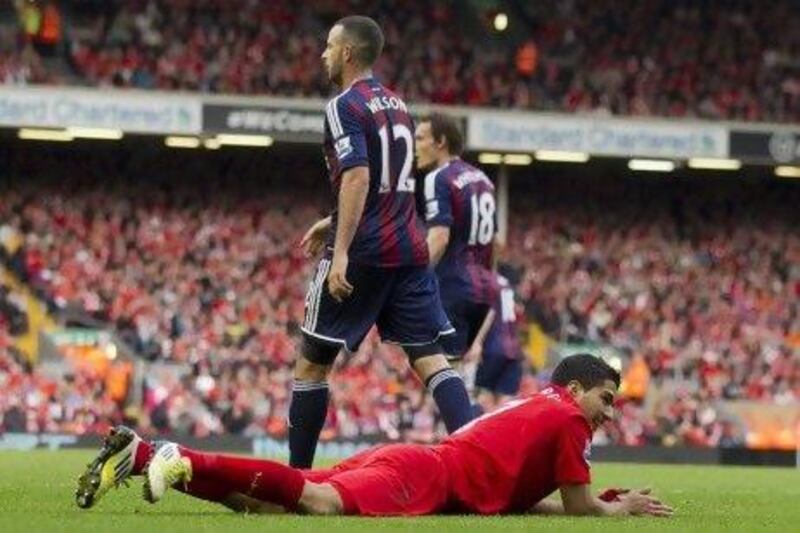Someone asked this week if I had ever dived during my career. I was offended - that is like asking if I cheated, willingly misled officials, my own teammates and opponents - for that's what diving is.
I had no time for players who dived, no time for feeble penalty claims. I played the game at the top level, had countless slight touches and got clattered.
You don't go down after a slight touch on a football field any more than you would go down from a slight touch walking down the street. Yet last week I saw an Everton player go down against Wigan from a touch so minimal that my 11-year-old daughter would not have fallen from it.
If a defender made contact with me inside the penalty area, my first reaction was, "I want to stay on my feet because I'm in a great position to score a goal here".
I went down when I was hurt - and even then I sometimes didn't get a foul. I suffered a broken leg after a horrendous challenge from Liverpool's Neil Ruddock, yet the referee did not consider it to be a foul. And I was proud that, unlike some, I did not have a reputation as someone who went down easily in the box.
The spectre of diving raises its ugly head every two or three years. It's like racism; when a few incidents creep back into the game it becomes a mainstream story, before it all calms down again.
Some claim that non-British players are to blame but I don't buy that, nor do I like it when a player or manager tries to defend diving.
Managers can be very cunning in claiming that they have not seen an incident which happened under their nose, yet when they need to see something they are the first to complain. Managers who complain that their players are marked men are trying to create a smokescreen
Luis Suarez should have been ashamed of his dive last weekend. I cringed as I watched him ask for a penalty, cringed more when his manager Brendan Rodgers tried to back him by claiming: "There seems to be one set of rules for Luis and another set for everyone else." Nonsense.
Rodgers also claimed that "the vilification of Luis is both wrong and unfair". It is not as wrong and unfair as cheating. Tony Pullis, the Stoke City manager, spoke a lot more sense when he described the Suarez dive as an "embarrassment".
Liverpool fans may think I am being critical because I used to play for rivals Manchester United, but I was equally appalled when United's Ashley Young dived a couple of times towards the end of last season.
He got so much height on his theatrical dives that he looked like he was going to hurt himself. I didn't like what I saw and neither did Sir Alex Ferguson, that's why he had a word with Young, who seems to have put his head down and cut out his diving since.
I don't like singling out players for diving, but sometimes the criticism stings them into changing their ways.
Gareth Bale is another talented player who dived last weekend. He claimed that he thought the goalkeeper was going to come through and could hurt him. Rubbish. The goalkeeper was doing his job and coming out to collect the ball. There was no need for Bale's Swan Lake impression.
In response, a Fifa vice-president this week described diving as "a cancer on the game". He is spot on and his comments surprised me as authorities usually turn a blind eye to diving - or cheating as I call it. There are some fantastic football in England, but when a player tries to cheat it detracts from that.
In Scotland, players who get caught simulating diving get booked - even if it's retrospective as officials examine controversial incidents. Other leagues could learn from that because diving is changing football.
Defenders feel like they are walking on eggshells and unable to tackle in the area. I've seen some really good challenges given as penalties because the laws favour attackers, who expect a tackle and can ride it to win a penalty.
Players who dive should look at one player as the best example of how to play properly - Lionel Messi. He rides challenges to stay on his feet.
But imagine if Messi went down and rolled round for four minutes every time he was touched? The game would be so stop-start it would be like American football.
Messi is the world best player for many reasons including his goals and dribbling ability, but people should also remember that he is the best player because of his desire to stay on his feet.
Andrew Cole's column is written with the assistance of European football correspondent Andy Mitten
Follow us
[ @SprtNationalUAE ]





